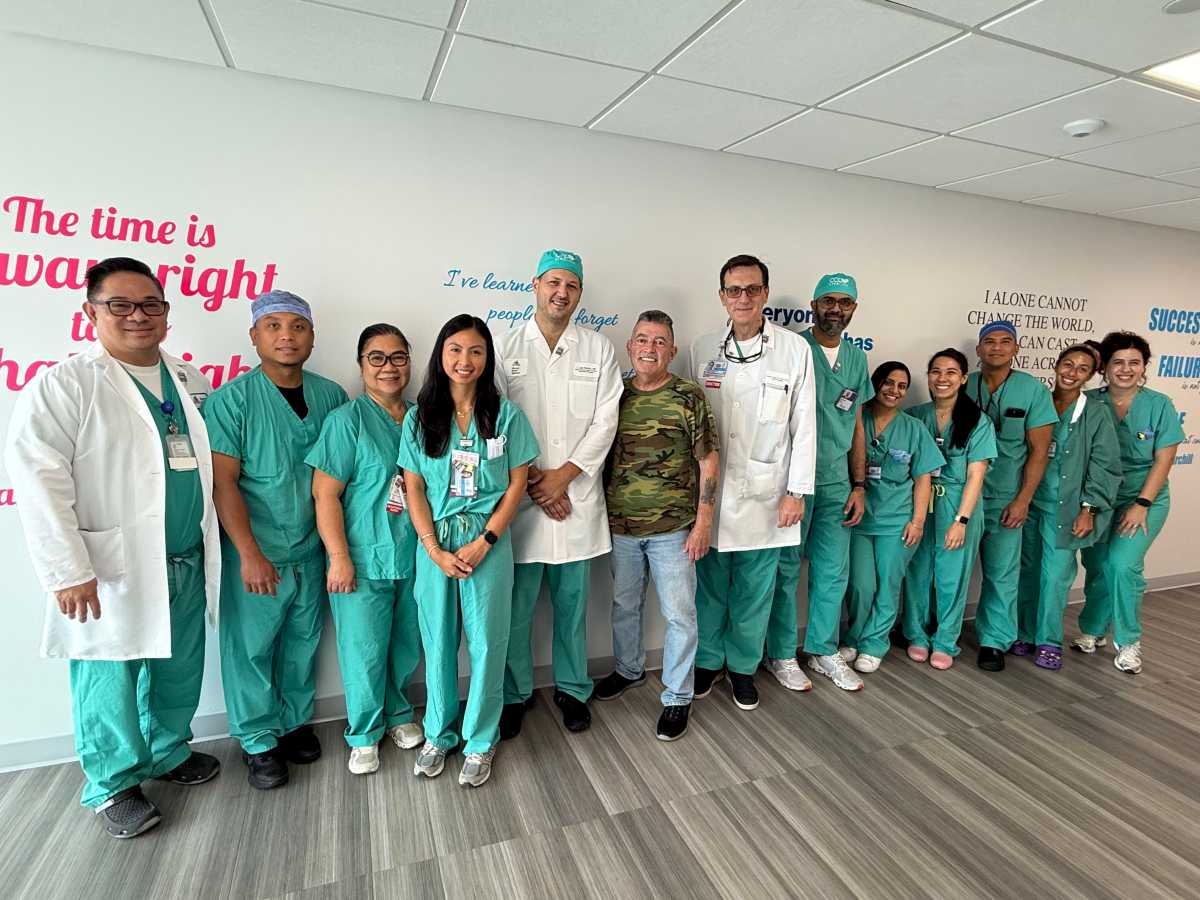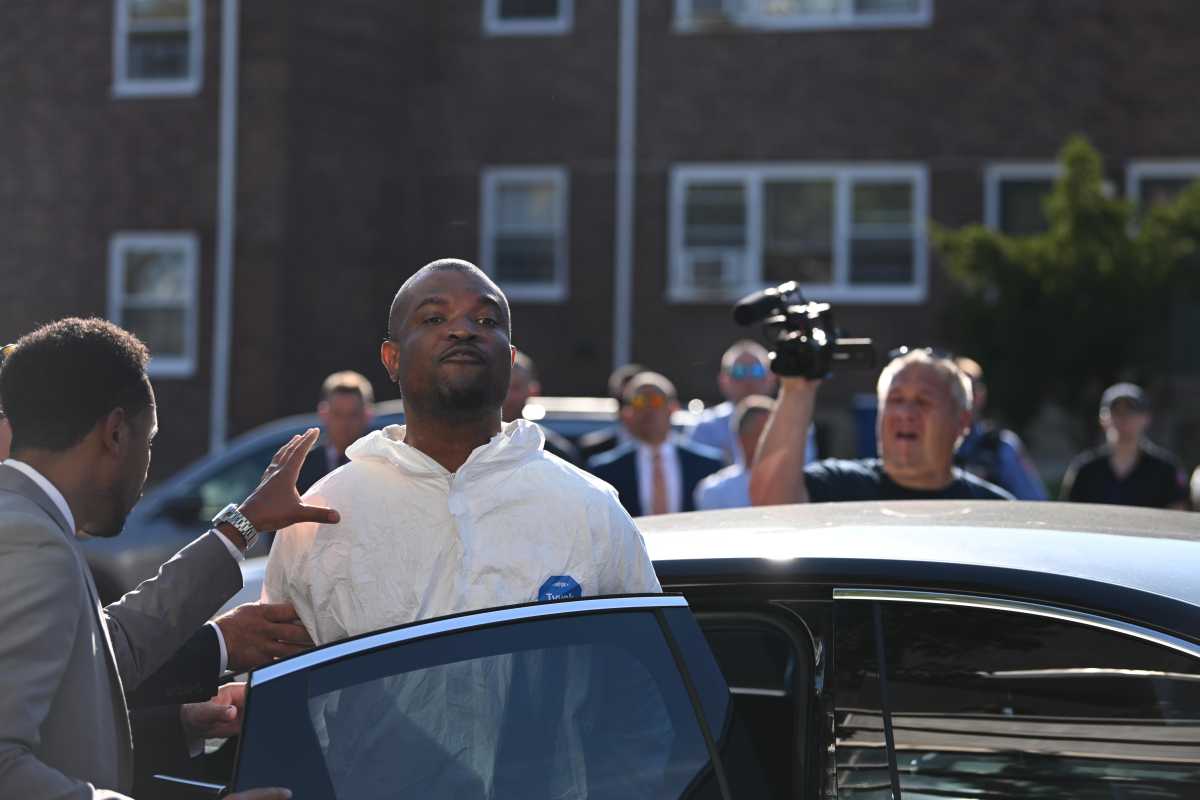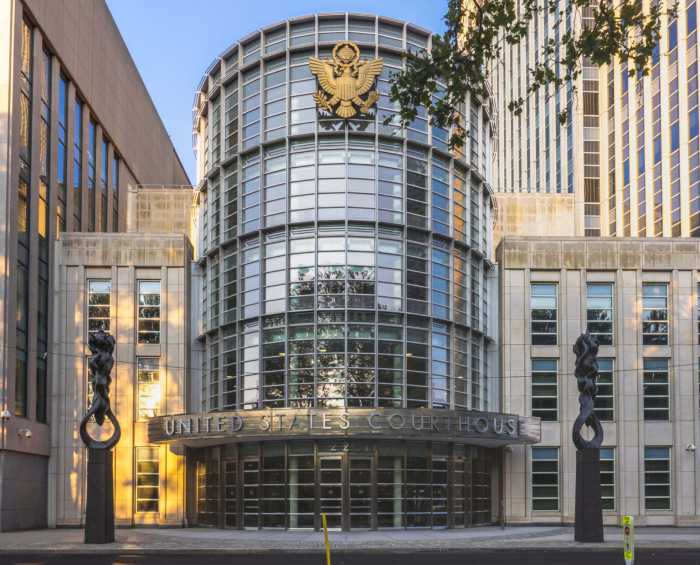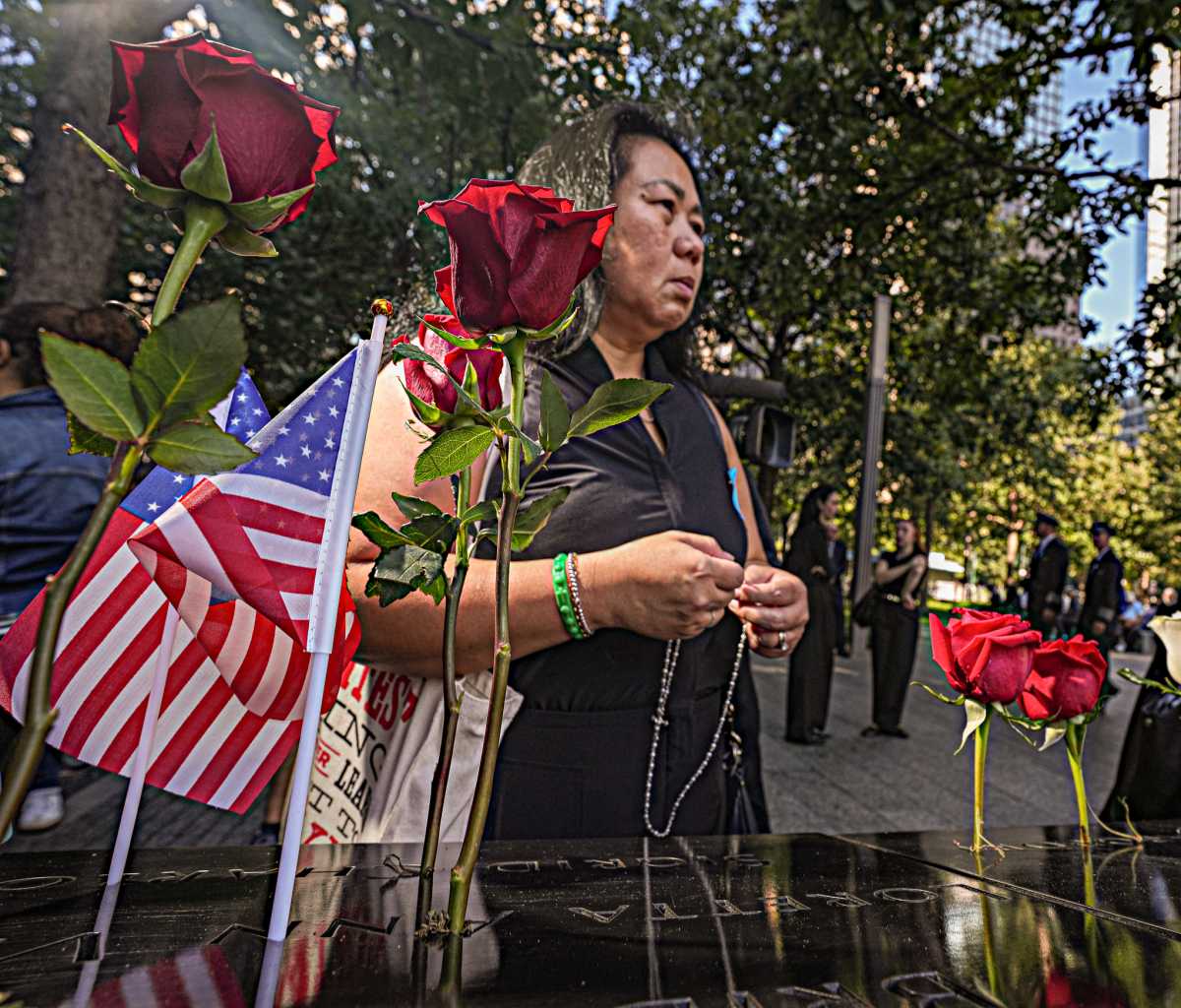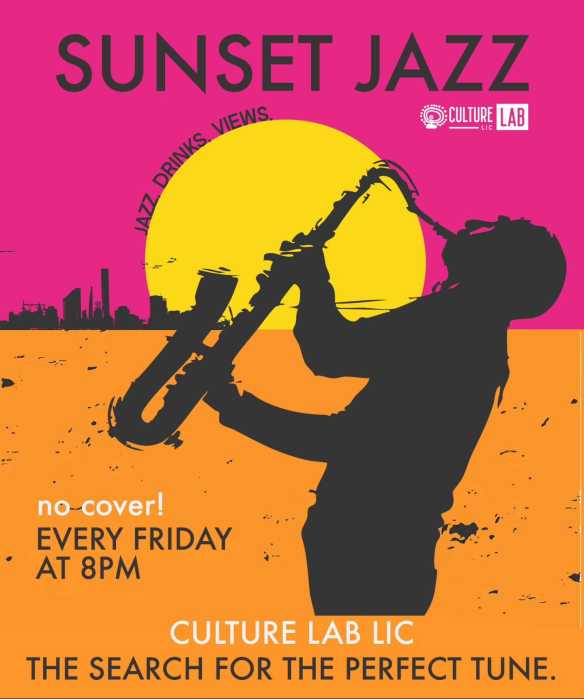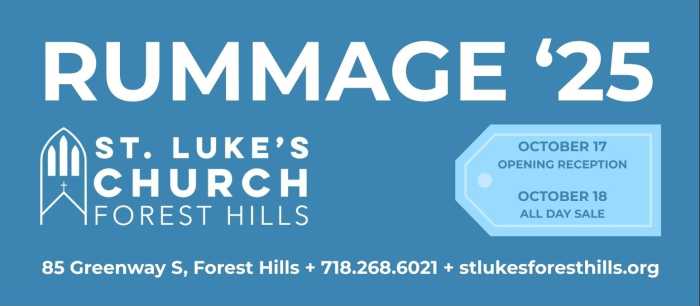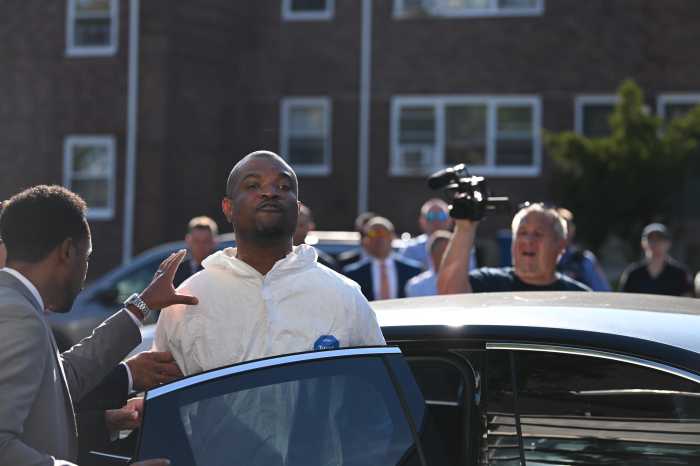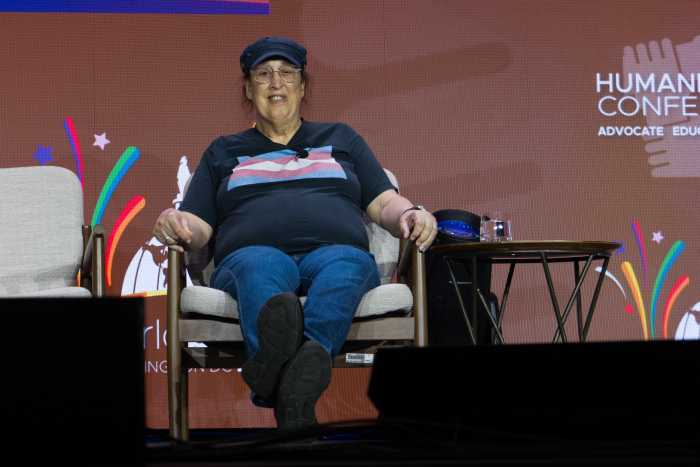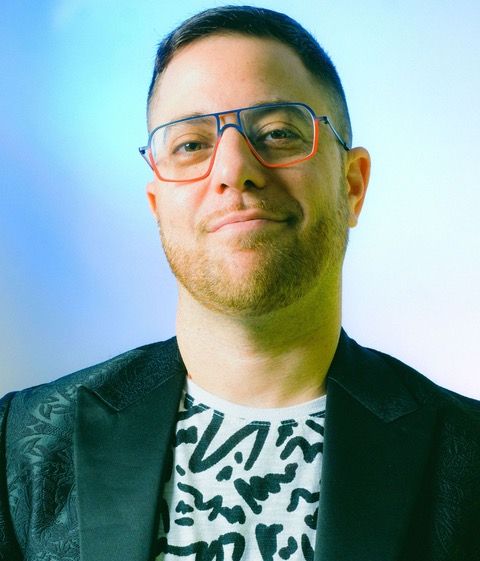Mount Sinai Queens maintenance worker Frank Parlatore remembers nothing of the day that changed his life, when his heart stopped for 45 minutes following a major cardiac arrest.
Parlatore, 61, who has ensured that operating rooms are sterile, safe and sanitized for patients undergoing heart surgery for the past 25 years, collapsed in the locker room of the Astoria hospital early in the morning of Feb. 20 while speaking to a colleague coming off the night shift.
Parlatore had went into cardiac arrest, suffering facial injuries as he crashed to the ground mid-conversation.
Mount Sinai staff performed CPR for more than 45 minutes as Parlatore coded on the hospital floor before he was eventually resuscitated and taken to an operating room, where he was stabilized.
Dr. George Syros, cardiologist and director of Arrhythmia Services at Mount Sinai Queens, described Parlatore’s survival as a “miracle.”
“People don’t usually last [in situations like these],” Syros said. “If you go more than four minutes without oxygen in your brain, you’re not going to do well.”
Syros, a close friend of Parlatore’s, had helped stabilize his friend in the Mount Sinai operating room and said it was “very different” compared to operating on a regular patient because of the personal relationship he shared with his friend.
Not only did Parlatore survive the initial cardiac arrest, but he also recovered with full brain and motor function, which Syros described as rare.
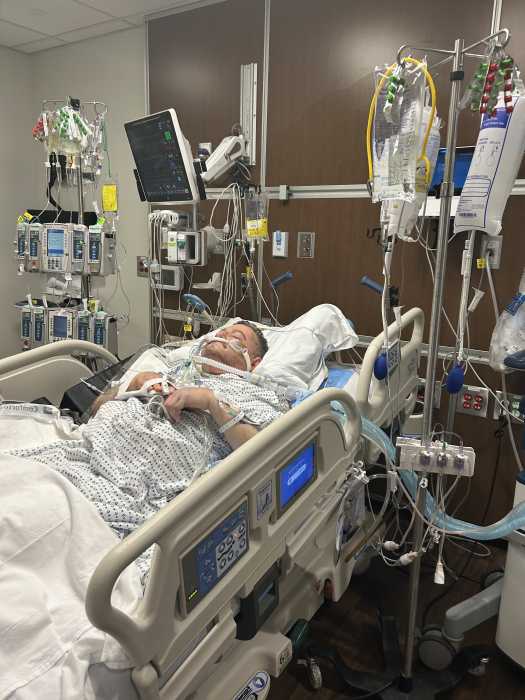
Parlatore was later transferred to Mount Sinai Manhattan for specialized intensive care and later woke up at that hospital without any idea of what had happened to him.
“The only thing that I remember was waking up in the ICU in the main campus [in Manhattan],” Parlatore said. “When I woke up and my eyes opened up, I saw a nurse. She jumped out of her chair and said, ‘Are you okay?'”
Dr. Ahmed El-Eshmawi, cardiovascular surgeon at the Manhattan hospital, said Parlatore was subsequently fitted with a defibrillator to help improve his heart function, which stood at around 20% after the cardiac arrest.
The defibrillator, coupled with heart medication, allowed Parlatore’s heart function to rise to a level that enabled doctors to safely perform a triple-bypass, which El-Eshmawi performed on May 12.
“He did fantastic,” El-Eshmawi said. “Then he went home and just continued to recover.”
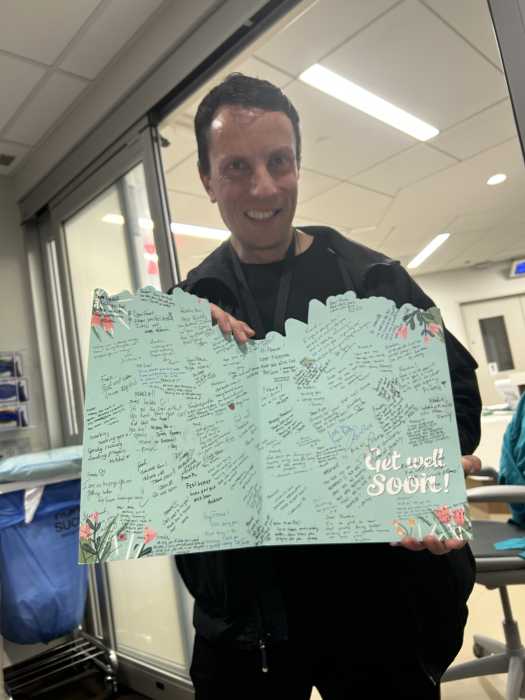
It took just three more months for Parlatore to return to work on an emotional Monday morning on Aug. 18.
“I just wanted to thank the people that saved me,” Parlatore said. “The people in the emergency room were not only shocked that I was physically and mentally okay, but they couldn’t believe that I was back to work in six months.”
Parlatore added that doctors had informed him that it could take up to a year to recover from the effects of the triple-bypass surgery.
He said he feels “so good” now after successfully undergoing the surgery and returning to work.
“I’m walking, I’m breathing, I’m not overdoing anything… I watch how I eat,” he said.
He also said the experience has taught him to appreciate the little things in life and taught him an invaluable perspective.
“I used to say, ‘I’ll do that tomorrow.’ Now, if I say I’m going to do something, I’m doing it right now.”
His miraculous recovery has also inspired staff at the Mount Sinai hospitals in Queens and Manhattan.
“The staff was so overwhelmed with emotions when he came back,” Syros said. “He came back from the dead.”
Syros described his friend as “part of the family” at Mount Sinai, adding that he is well-liked by everyone at the hospital.
“He’s extremely popular,” Syros said. “I see this guy every day. We’ll go for a coffee before we start working… I have been privileged to be working alongside him for a decade.”
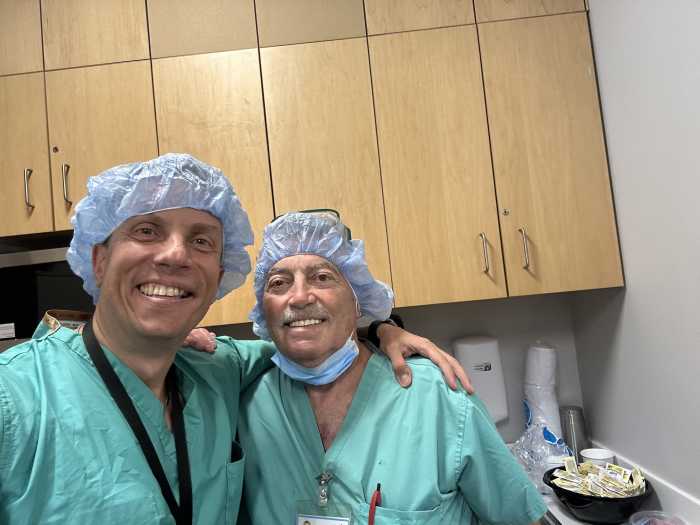
Dr. George Dangas, chief of Cardiology at Mount Sinai Queens, said it “took a whole village” to help Parlatore recover from the medical emergency in February.
Dangas was consulted immediately after Parlatore suffered the cardiac arrest and said there were major doubts if his heart would ever recover enough to enable open-heart surgery.
Dangas also believes that it was Parlatore’s self-belief and perseverance that made a critical impact on his recovery.
“If he himself didn’t believe, he wouldn’t have made it,” Dangas said. “But we knew him as a person of great stamina and great will.”
He added that Parlatore was fortunate that he suffered the incident at a hospital, where first-class medical treatment could be administered almost instantly.
“He went out, but he was at work,” Dangas said. “He’s very lucky because he’s exactly in the cardiology department at the hospital. He collapsed right there in front of the doors to the operating room.”
Parlatore similarly believes that he was lucky that the emergency occurred when he was already at the hospital. By some stroke of luck, Parlatore had arrived at work 30 minutes earlier than usual and went into cardiac arrest almost immediately after arriving at the locker room.
He had been talking to a colleague who would not normally be in the locker room at that time and would have otherwise suffered cardiac arrest in isolation.
“Whatever it was, whatever spirit or higher power, I’m glad it happened there,” Parlatore said. “They knew their job. They knew exactly what to do. They did it to the best of their ability. They gave me a chance to survive.”
He also believes that he is “lucky” to still be able to appreciate the finer things in life after pulling through such a major health event.
“I take life a little easier. I go at my own pace,” he said. “I’m seeing things differently. I’m sitting on Roosevelt Island and I can see Long Island City, where the ferry goes from. Little things like that, where I have peace and a coffee.
“I appreciate how lucky I was because most people aren’t as lucky as I was and never pulled through.”

